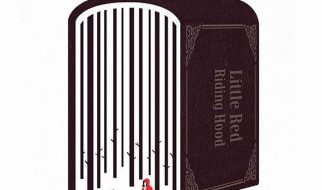The following is a collection of possibly the most disturbing Bible passages you can find. Why collect and discuss them? Because they?re in the Bible! The Bible depicts an impressive narrative on the human experience. And the human experience is often terrible.

A Note about These Disturbing Bible Passages
Many people want to proof-text these passages to show that the Bible is bad or wrong. But they are usually reading their beliefs about the Bible into these stories. True, these stories are awful. These are disturbing Bible passages. But, the passages do not support or glorify the terrible events in them.
Each one is a story describing how things were or how things are. They are not stories about how things should be. In fact, they are the opposite. They are stories about how things should not be. The following passages depict humans at their worst, and the terrible consequences that follow.
The translations given below are mine.
1. Circumcision and Slaughter in Genesis 34
Genesis 34 is a disturbing Bible passage. It shows the deep human urge for revenge.
In Genesis 34, Shechem, a foreigner, has sex with Dinah, the daughter of Jacob. There is some disagreement on whether or not this is a case of rape, although most Bible translations interpret it as such. In either case, two of Dinah?s brothers, Simeon and Levi, consider her to be ?defiled,? and want revenge.
Jacob and the foreign leader try to make an agreement to live peacefully and intermarry. Shechem?s people even agree to enter into God?s covenant, originally made with Abraham, by having all the men circumcised. That is when Simeon and Levi decide to exact their revenge:
Genesis 34:24?29
?All the men who went out to the city gate agreed with Hamor and his son Shechem. Every male who went out to the city gate was (25) In three days, when they were still in pain, two of Jacob?s sons, Simeon and Levi, Dinah?s brothers, each took his sword and entered the city in secret and slaughtered every male. (26) They slaughtered Hamor and his son Shechem with the sword. Then they took Dinah from Shechem?s house, and they left. (27) Jacob?s sons came upon the dead and plundered the city because they had violated their sister. (28) They took their flocks, herds, and donkeys, as well as everything in the city and in the surrounding fields. (29) And they captured and plundered all their wealth, all their little ones, and their wives ? everything that was in the house.?
Genesis 34 ends with Jacob screaming at his sons for making him an ?odor? and making them vulnerable to the other inhabitants of the land.
Comments on Genesis 34
If Genesis 34:2 actually is a case of rape, the fury of Simeon and Levi is understandable. However, that is not the point of the story. There are two major reasons that show how awful Simeon?s and Levi?s actions were.
First, we see in verses 27?29 that Simeon and Levi aren?t just out for justice. There is a lengthy description of their plundering: flocks, herds, donkeys, everything in the city. The Bible could simply state, ?They plundered everything.? But it continues: their little ones and wives! Innocent people who had nothing to do with Dinah?s rape have had their husbands and fathers murdered, their possessions taken, and have themselves become someone else?s property.
Second, we see that Simeon and Levi use God?s unique covenant with their ancestor Abraham as the vehicle for their revenge. In Genesis 17, God describes the act of circumcision as a sign of the covenant made between God and Abraham. It seals the promise to make a great nation of Abraham and his descendants. But in Genesis 34, Simeon and Levi abuse it. They bring the people of Shechem into their covenant with God only to murder them and take their wealth.
2. Infanticide and Cannibalism in 2 Kings 6
The end of 2 Kings 6 is an especially horrifying Bible passage. It depicts unspeakable acts in times of desperation.
At the time of 2 Kings 6, an enemy king named Ben-Hadad is besieging the city of Samaria, the capital of Israel at the time. This means that all food supplies into the city have been cut off. There is famine. And there is starvation.
The passage begins with the king of Israel walking along the wall. Suddenly, a woman screams up at him for help.
2 Kings 6:28?29
Then he asked her, ?What?s with you?? She said, ?This woman said to me, ?Give up your son so we may eat him today, and tomorrow we?ll eat my son.? (29) So we boiled my son and ate him. The next day I said to her, ?Give up your son so we may eat him,? but she had hidden her son.?
Comments on 2 Kings 6
As if the act of killing one?s own child is not horrifying enough, the act of eating the child is beyond belief. What?s more, this disturbing Bible passage reports the events in a terse, matter-of-fact way. Furthermore, the focus of the woman?s complaint is not the fact that she was starved enough to kill and eat her child. She is upset because another woman will not do the same! We see that not only is there starvation, but a total lack of remorse for the most horrifying of actions.
We find a warning, and a sort of explanation, for this disturbing event in Leviticus 26:27?29:
?But if despite this you will not listen to me and you walk away from me, (28) then I will walk away from you in fury. I myself will punish you seven times over for your sins. (29) Then you will eat the flesh of your sons and the flesh of your daughters??
As you might imagine, the rest of Leviticus 26 does not get any prettier.
3. Prophecy and War in 2 Kings 8
Shortly after the events of 2 Kings 6, a new enemy king is about to cause trouble to Israel. In a somewhat bizarre international event, Elisha, prophet in Israel, witnesses the downfall of one enemy king and the rise of another, Hazael. In 2 Kings 8:12, Elisha sees the disturbing events to come:
2 Kings 8:12
?Hazael asked, ?Why is my lord weeping?? And [Elisha] said, ?Because I know the evil you will do to the Israelites. You will set fire to their fortified places, kill their young men with the sword, dash their little ones to pieces, and rip open their pregnant women.??
Comments on 2 Kings 8
The depictions of buildings set aflame and men killed are terrible enough. But it is the treatment of women and children that makes this such a disturbing Bible passage. And what is striking about this verse is how graphic its description is. It is not a matter-of-fact description. Rather, the enemy king will dash their children and tear open their pregnant women. The result is a terrifying depiction of cruelty. Unfortunately, this is a kind of cruelty that humanity has still not completely put behind us.
A related passage comes from the prophet Hosea. In Hosea 13, the prophet depicts Israel?s unfaithfulness and coming punishment. The seriousness of the guilt of the people of Samaria, the capital of Israel, appears in verse 16:
?Samaria shall bear her guilt, because she has rebelled against her God. They will fall by the sword; their little ones will be dashed to pieces, their pregnant women will be ripped open.?
4. Cruelty and Blinding in 2 Kings 25
In 2 Kings 25, we find another disturbing Bible passage. However, it is not disturbing because of its graphic nature. Rather, it is disturbing because of its thematic nature. The king of Babylon has spread his empire farther than ever before. And, he has finally reached the kingdom of Judah. We see the cruel punishment he forces upon Zedekiah, the disobedient king of Judah:
2 Kings 25:7
?They slaughtered the sons of Zedekiah before his eyes, and put out the eyes of Zedekiah. Then they bound him with fetters and took him to Babylon.?
Comments on 2 Kings 25
With this event, the kingdoms of Israel and Judah have come to an end. The exile of Israel has begun. This passage marks the beginning of a terrible time in biblical history. As if that itself is not enough, the king of Babylon murders innocent victims to impose senseless psychological torture upon the king of Judah.
5. Bitterness and Revenge in Psalm 137
Given some of the horrible events that Israel has endured, one could understand some bitterness among its survivors. For centuries, foreign nations have attacked, conquered, and oppressed Israel. Now, the people of Israel are dead or in exile. They have no true home or leader. Many have starved, seen children slaughtered, and women?s wombs torn open. With that in mind, the bitterness behind Psalm 137 becomes more understandable:
Psalm 137:8?9
?O Daughter Babylon, about to be destroyed: Happy is the one who repays you according to what you have done to us. (9) Happy is the one who seizes your little ones and dashes them against the rocks.?
Comments on Psalm 137
A desire for revenge is all too human. However, it may be even more than that. The psalm also seeks a sort of ?justice.? The psalm begs God to do to Babylon what it has done to Israel. And it uses the most horrifying imagery to do it.
A related Bible passage is in Isaiah 13. The prophet Isaiah pronounces judgment on Babylon for its cruelty. It begins with Isaiah 13:9:
?Now, the day of the LORD is coming ? cruel, and full of wrath and fierce anger? (16) Their little ones will be dashed to pieces before their eyes. Their houses will be looted, and their wives will be raped.?
When we consider the history of Israel up to this point, we can understand the deep bitterness in this disturbing Bible passage. And I believe that understanding disturbing Bible passages? backgrounds is better than simply ignoring them as we do in so many Church readings. But, we must also keep in mind that other passages in the Bible prohibit punishing the innocent for another?s crimes. And, obviously, so many other Bible passages encourage forgiveness.
6. Gang Rape and Dismemberment in Judges 19
Last but not least, we have a passage that is, simply put, messed up. Judges 19 is arguably the most disturbing Bible passage you can find. This passage resembles the story of Sodom and Gomorrah in Genesis 19, where visitors stay the night in a city where the inhabitants want to rape them.
In Judges 19, the men of the city demand that the homeowner bring out his visitor for them to have sex with. He refuses, and tries to convince the men to take his daughter and concubine instead. Then we read these horrifying verses:
Judges 19:25?29
?But the men would not listen to him. So the man took his concubine and brought her out to them in the street. Then they raped her and abused her all night and until morning. Then they let her go at sunrise. (26) The woman went at dawn and fell at the door of the house where her master was staying, and lay there until it was light. (27) When her master got up in the morning, he opened the door of the house and stepped out to go on his way, and there lay his concubine, fallen in the doorway of the house, with her hands on the threshold. (28) Then he said to her, ?Get up. Let?s go.? But there was no answer. So he took her and went home. (29) When he entered his house, he took a knife and cut his concubine in pieces, limb by limb, into twelves parts and sent them to every region of Israel.?
Comments on Judges 19
There are almost no words for these horrifying events. There are just so many things wrong in this disturbing Bible passage. The detail and the graphic nature are truly disturbing. It describes a night-long chain of abuse that ends with a woman dead and fallen in the doorway to the house. And as if that is not despicable enough, the woman?s master cuts her corpse into pieces!
The moral depravity in Judges 19 is astounding. First, how despicable of a city is this that its men want to gang rape a visitor? Second, what is the homeowner thinking, trying to have his daughter and concubine be gang raped instead? And third, how heartless and insane is the master of the concubine? His response to finding her fallen at the door is callous and without a hint of empathy. Also take note that he apparently would have left her there ? he was about to go on his merry way. Finally, his decision to chop her into pieces and send her all over Israel is nothing short of insane.
The Book of Judges in a Nutshell
So, what are we to make of Judges 19? In brief, we could say the entire message in the book of Judges is ?there was no king in Israel.? The entire book depicts the land and people of Israel in utter chaos because they have no leader. Therefore, Judges 19 is the epitome of that chaos.
Conclusion
It would be difficult to find more disturbing Bible passages than these. We have seen the misuse of God?s covenant to slaughter enemies. We have seen, murder, rape, cannibalism, and dismemberment. And we have seen cruelty that few of us could imagine.
Why discuss these disturbing Bible passages? Because they are just that ? Bible passages. They are in the Bible for a reason. They put some of the worst human inclinations on display. Do any of these disturbing Bible passages advocate the awful things they depict? Of course not! They are all the terrible consequences of awful human decisions.
These disturbing Bible passages show us how things were and how things are. They do not show us how things should be.


